Walk a mile in Clarke’s shoes
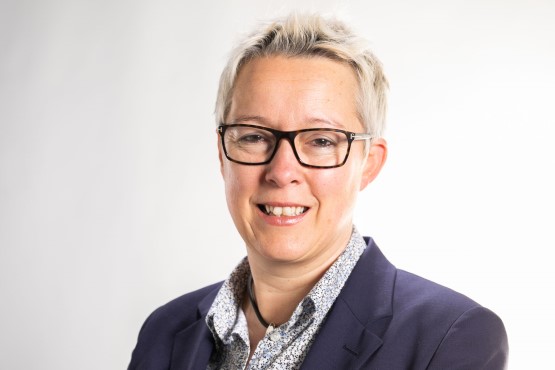
The Royal Free NHS trust has specialised in tackling infectious disease for nearly 200 years. Chief exec Caroline Clarke tells Matt Ross how staff across the trust and the capital have mobilised to tackle COVID-19 – and considers the thorny challenges ahead.
In 1828, says Caroline Clarke, “a bloke called William Marsden found a young woman sick on the steps of a church in Hatton Garden. He couldn’t get her into any of the hospitals, and she died. So he got together with a group of his mates and founded the first free hospital – 120 years before the creation of the NHS.”
Nine years later, she adds, the new hospital was the only one to stay open throughout the cholera epidemic: rewarded with a royal charter by Queen Victoria, it became the Royal Free Hospital. It’s been at the forefront of efforts to counter infectious diseases ever since: today, it houses one of England’s two principal ‘Contact High Consequence Infectious Disease Treatment Centres’. “When care workers were coming back from West Africa with suspected Ebola, they came to the Royal Free,” recalls Clarke. And it’s been in the thick of the battle against COVID-19: it was the second hospital to accept coronavirus patients, and serves some of the hardest-hit parts of London – including Brent, Harrow and Barnet.
Clarke began her career at the Royal Free back in 1991, joining as a finance trainee. And 20 years later – after a management career including stints both in KPMG’s health strategy team, and as managing director of NHS North Central London clinical commissioning group (CCG) – she returned as chief finance officer: the Royal Free seems to exert a “boomerang effect”, she comments. During the 2010s – combining the finance role with the job of deputy chief exec – she helped the trust gain foundation status, acquire Barnet Hospital and Chase Farm Hospital, and establish a clinical partnership with North Middlesex University Hospital NHS Trust. And in February 2019, she became group chief executive of Royal Free London NHS Foundation Trust. Then came COVID-19.
Mass mobilisation
The trust’s staff, she says, have shown incredible commitment, focus and innovation during the crisis – with 20-30% of the 10,000-strong workforce shifting roles to help tackle COVID-19. “One of my favourite moments was a couple of very eminent academic surgeons, both professors, proudly telling me that they were now part of the intensive care proning team – the people who turn ventilated patients,” says Clarke. “Our doctors totally reorganised their rotas over the course of 24 hours. Three hundred medical students from University College London qualified a bit earlier than usual, and came onto our wards. There’s a humility and a sense of purpose, with everyone wanting to help – and that is something you cannot buy.”
Unfortunately, that’s not the only thing that you can’t buy. “It’s been much too difficult to get PPE, though we’ve never run out. And outside London, I think the supply chain hasn’t been as good and I’ve heard much more distress about PPE from people in jobs like mine,” she says. “As a nation, we’ve run a just-in-time system, but actually we need a just-in-case system. We’ve got to now build much more resilient supply chains, with contingency in them – for PPE, ventilators, drugs. It’s been hairy.”
Similarly, the Royal Free found that its oxygen supplies were running low, and had to double its capacity: “I never thought that would be an issue for us, but it was a really big issue,” she comments. Chief finance officer Peter Ridley, she adds, has “rolled his sleeves up and taken responsibility for the estates, the facilities and the equipment workstream in our command structure.”
Acting together
The collective approach of the Royal Free’s staff, says Clarke, has been mirrored in unprecedented levels of collaboration across North London’s health and care system. This is a dense, complicated institutional landscape: the North London sustainability and transformation partnership (STP) includes five CCGs, five councils and 11 NHS trusts. But organisations have “cut through any institutional crap and concentrated on providing care, putting safety and life before anything else. There’s been a visceral response,” she says. Patients, ventilators and PPE have been moved across the system, with people putting budgetary or remit issues aside to “do the right thing – and we’ve got to keep that; we struggled with bits of it before.”
Similarly, COVID-19 has also accelerated partnership working at the city-wide level. “Because the epidemiology has put us ahead of the curve, we’ve seen some really good thinking come out of London, and some helpful ways of gathering the leadership community to make decisions,” she comments. “The Nightingale Hospital is a good example of that: as a London community, we all agreed that we needed an insurance policy.” In the event, the lockdown’s success in damping infection rates meant that acute hospitals could cope with the first wave of patients; but at the point the Nightingale was commissioned, modelling suggested that London might need 7,500 intensive care beds – swamping its 1,200 capacity. “Looking forward, I think London is a really helpful organising unit,” she says.
Yet no amount of collective action can plug every gap in the system; and COVID-19 has exposed the weaknesses in London’s social care provision. “Lots of these care homes have big vacancies, and they’re operating on low margins or highly-leveraged debt,” she says. “We’ve got a real problem there that we have to address – and that doesn’t feel like someone else’s problem. It’s a really big challenge for people like me, as well as the wider system.”
Elective treatments red lines: tests and PPE
The task of restarting elective procedures – planned diagnostics and treatments – while keeping staff and patients safe from COVID-19 is another issue that “you’ve got to look at as a system, not an organisation,” says Clarke. By distributing elective procedures to private and specialist hospitals, NHS leaders can keep these patients out of the A&E providers handling COVID-19 patients. “In London, we’ve agreed that we’ll consolidate all complex surgery, and we think we’ll be able to do that at a scale which will be more efficient and get better clinical outcomes,” she explains. “That has a knock on effect on smaller hospitals that were, for example, doing cancer surgery. Probably, most cancer surgery will now get done in big organisations; that was the direction of travel before, but we’ve speeded it up.”
Meanwhile, “well over 50%” of advisory appointments can be conducted remotely. But her trust’s three hospitals will still need to carry out some elective work, and Clarke has “two red lines” about the capabilities required before they can begin doing so. “The only way we can restart is if we’ve got loads and loads of PPE, and loads and loads of really rapid-response tests,” she says.
Surgery requires large amounts of high-spec PPE, Clarke explains, and hospitals need far greater testing capacity: staff must be tested frequently, and patients both a week or two prior to their appointment and on the day. “We need machines that can turn tests around really quickly when you’re going to start surgery, and right now I don’t have enough,” she says. “I think I’ll get them, but it’s a current problem.”
Even when the equipment is in place, trust managers will face difficult decisions around prioritisation: as they start to make inroads into the backlog of elective work, which treatments and patients should they see first? “It’s really difficult to make those decisions across the system and protect your doctors from having to make individual decisions around patients,” she comments. And there’s a link here to equalities issues: BME people are suffering disproportionately from COVID-19, and Royal Free research has found that “people in the lowest quintile socio-economically wait disproportionately long” for planned treatments. “Our recovery plans will focus on addressing some of those inequalities,” she says.
Rethinking financial management
These issues – like much of the Royal Free’s work on COVID-19 – demand a form of “directive, command-and-control leadership” that represents a break from Clarke’s usual approach. “I was an accountant strategist, not an operational manager,” she comments. “Directive, ‘gold incident’ management will never be my preferred style, but there’s definitely a place for it.”
The shift to emergency-response mode doesn’t render her skills in financial planning redundant; far from it. Finance professionals, she says, understand “the quantification of the unknown… How you make decisions into the future when you’ve got lots of unknowns” – and this is certainly true of COVID-19. While many traditional finance roles are being superceded by digital tech, she adds, finance professionals are taking on new tasks: “roles around change management, business partnering, good decision-making”. And Clarke – who is chair of the Healthcare Financial Management Association – recalls the words of health improvement specialist Maureen Bisognano: “‘Everyone’s got two jobs: one is your day job, and the other is to change.’”
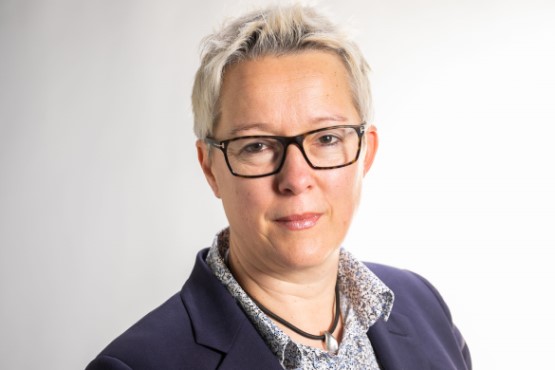 “If we want to do this properly, we’ve got to fund it… we’ve got to make sure social care is looked after and nurtured, and that it doesn’t continue to be a kind of add-on afterthought. That’s fundamental.”
“If we want to do this properly, we’ve got to fund it… we’ve got to make sure social care is looked after and nurtured, and that it doesn’t continue to be a kind of add-on afterthought. That’s fundamental.”
“That’s so true,” she comments. “For anyone starting out in their management careers, that’s the job and you’ve got to get used to it. And the more you change, the more you get resilient to change and the more you enjoy it. There’s something about being confident to step into the unknown.” So finance professionals’ ability “to shape and scale and quantify” will be hugely valuable in the NHS of tomorrow. “And the best leaders in the finance community are the ones who can combine those quantitative things with the narrative qualities which speak to people’s hearts. It doesn’t work so well if you’ve only got one or the other, I have learned!”
PTSD and public perceptions
Those softer skills are essential during the pandemic. “I’ve got a lot of knackered staff,” she says. “People talk about PTSD [post-traumatic stress disorder]. I’m not a clinician, but I worry that people have been quite damaged by what has happened, and I have a duty of care and a moral responsibility to make sure they’re okay.” The trust, she adds, has “armies of therapists and psychologists going out to teams to chat to them about what they’ve been through – and to think about what [changes] they’d keep and take into the new world.”
Meanwhile, she worries about public perceptions as the Royal Free reopens its elective procedure operations. “The public shouldn’t expect things to return to normal: I won’t be able to provide services safely in the same way that we used to provide them, because I can’t keep people separate and I can’t isolate infection,” she explains. “So things are going to be really different: how do we make sure that civil society keeps backing us up and doesn’t get resentful over those changes? I don’t have an answer, but I know that’s one of the big questions that we’ve got to grapple with.”
As Clarke looks beyond the current crisis, though, she finds grounds for optimism. Digital services have advanced rapidly, she notes, while NHS bodies have focused solely on patient needs – putting “population before institution.” And she believes that trusts will work more closely together in the future, creating “provider alliances and using different forms of governance to get decisions made more quickly.”
Funding free services
More broadly, having previously highlighted the gap between the public’s expectations of healthcare and the money allocated to the NHS, she hopes the post-pandemic electorate may be willing to accept higher taxation to support health provision. “If we want to do this properly, we’ve got to fund it,” she says. “There’s a sense that you get what you pay for.” This message, she emphasises, encompasses social care: “We’ve got to make sure social care is looked after and nurtured, and that it doesn’t continue to be a kind of add-on afterthought. That’s fundamental.”
And within the Royal Free trust, Clarke says, NHS staff – while exhausted – have “re-found our sense of purpose.” Responding to COVID-19, people have been “thinking differently – across disciplines, and up and down the organisation.” They’ve altered roles and systems, developed new connections across the organisation, and shared a sense of collective effort. Just as NHS bodies across the capital and the North London STP have disregarded narrow organisational interests to tackle coronavirus, the Royal Free’s workforce has accepted and promoted major changes to working practices in order to support patients.
Like their predecessors who kept the hospital open during the 1837 cholera epidemic, Clarke concludes, “this generation will be defined” by their experiences during the COVID-19 crisis. And, like that previous workforce, today’s staff will be remembered as the people who carried the Royal Free through another key moment in its long history – creating another milestone in its 190-year track record of protecting the public from infectious disease. William Marsden would be proud.
Related News
-
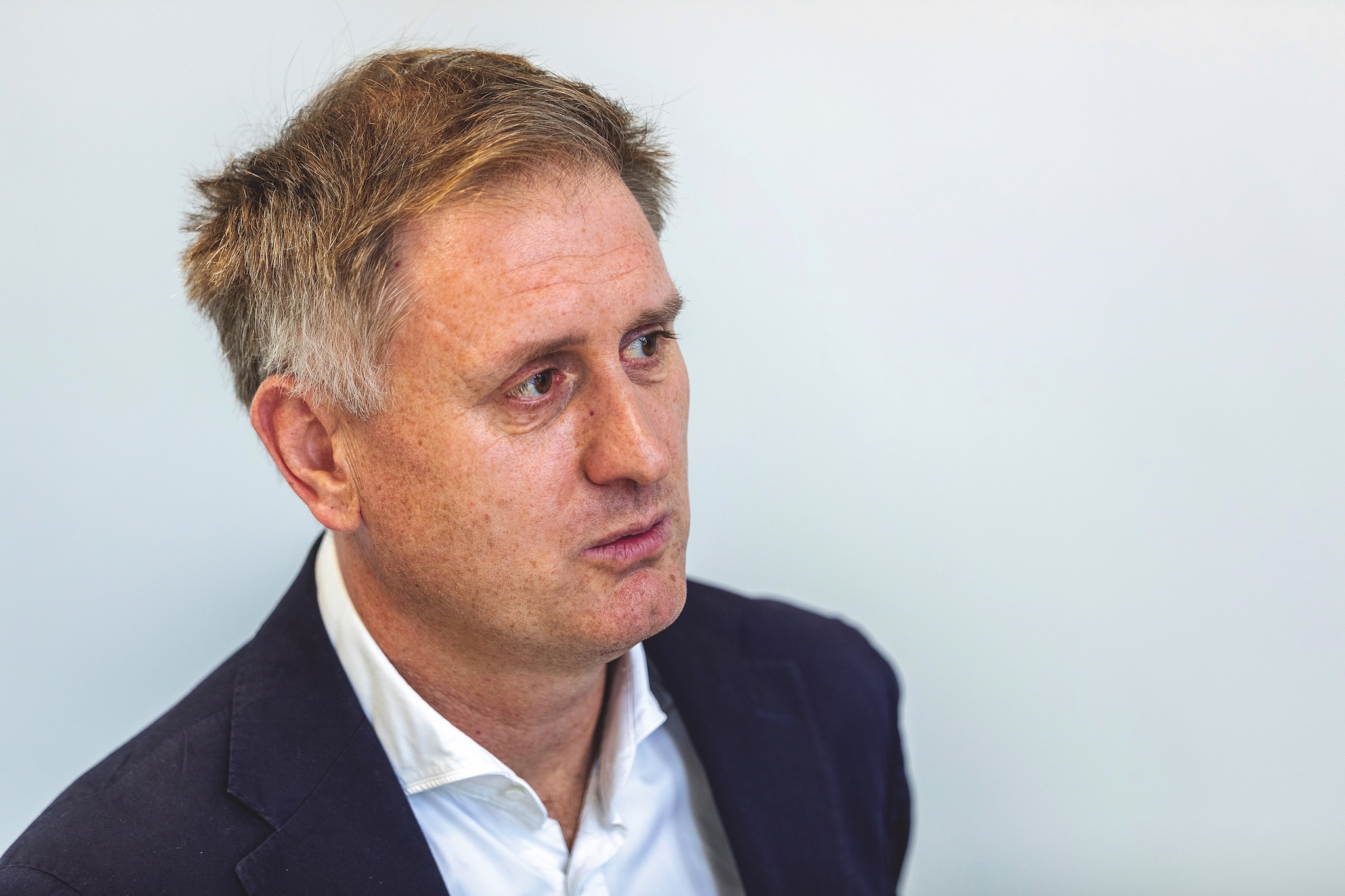
“Showing kindness and trust creates a virtuous circle – people respond well to that”
As chief executive of Suffolk and North East Essex, one of England’s most highly rated integrated care boards, Ed Garratt has pioneered a radically different approach to leadership – one based around kindness, trust and putting down deep roots in local communities. He talks to Healthcare Manager’s Matt Ross.
-
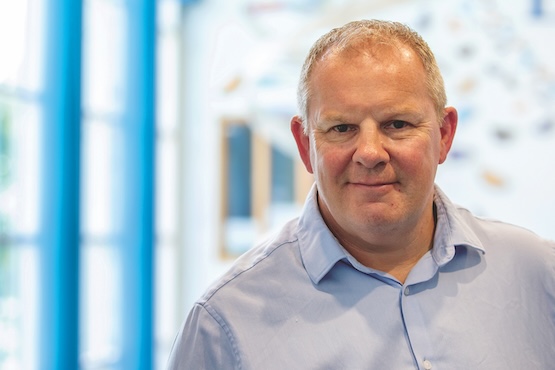
We need to give managers reasons to join the profession — not risks to avoid
Steve McManus’s work developing the leaders and managers the NHS needs for the 21st century has caught the eye of national leaders. The Royal Berkshire trust chief executive talks to Matt Ross about transforming services, developing leaders and the right way to regulate the management profession.
-
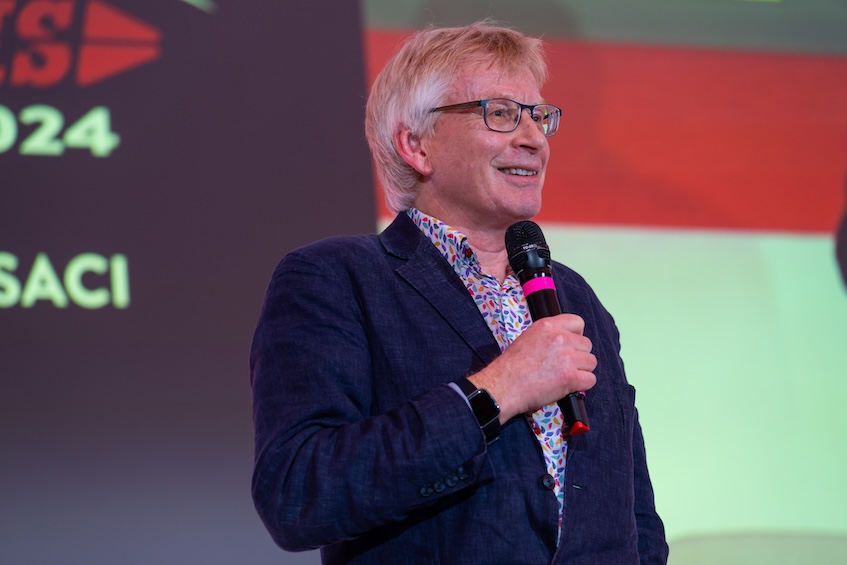
Interview: Dr Phil Hammond, doctor, comedian, health campaigner
Doctor, comedian, broadcaster, writer, health campaigner and politician manqué, Dr Phil Hammond is now drawing up a manifesto to rescue the NHS and boost the nation’s health. On the eve of a watershed general election for the UK, he spoke to Healthcare Manager’s Matt Ross.